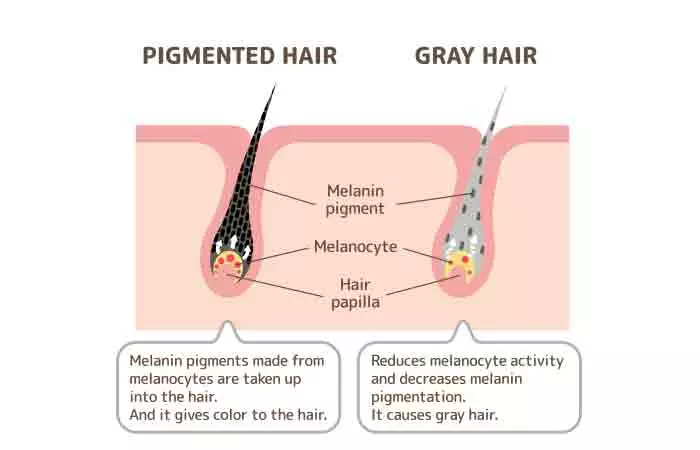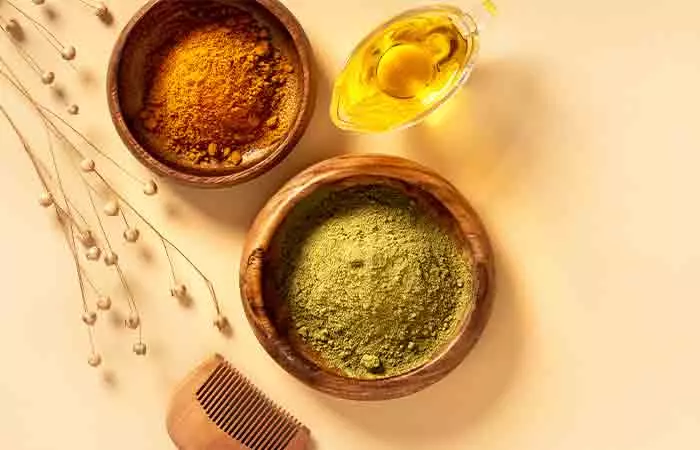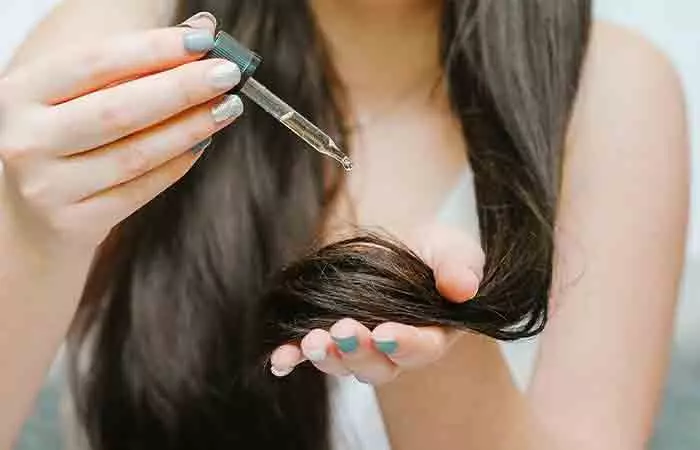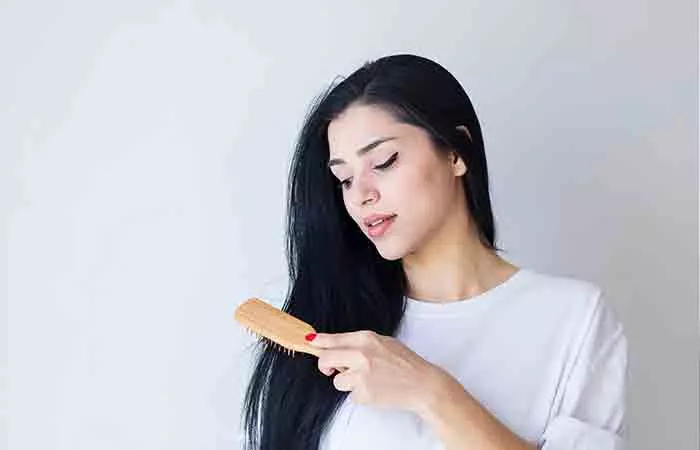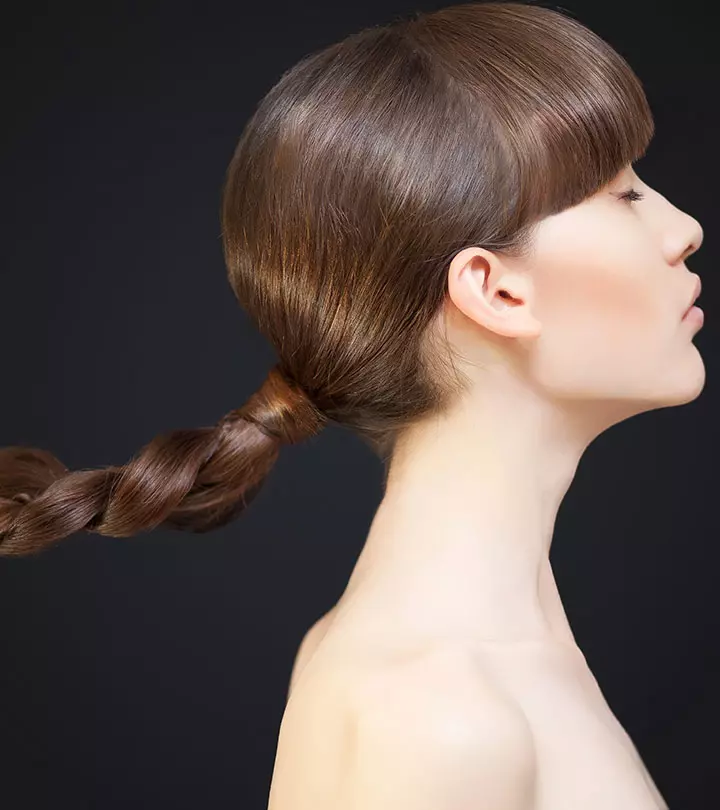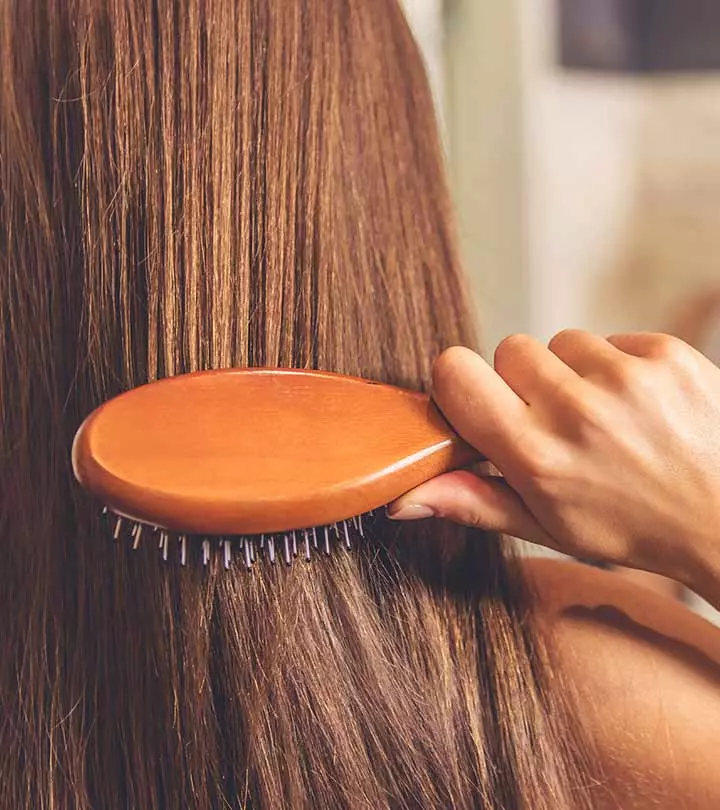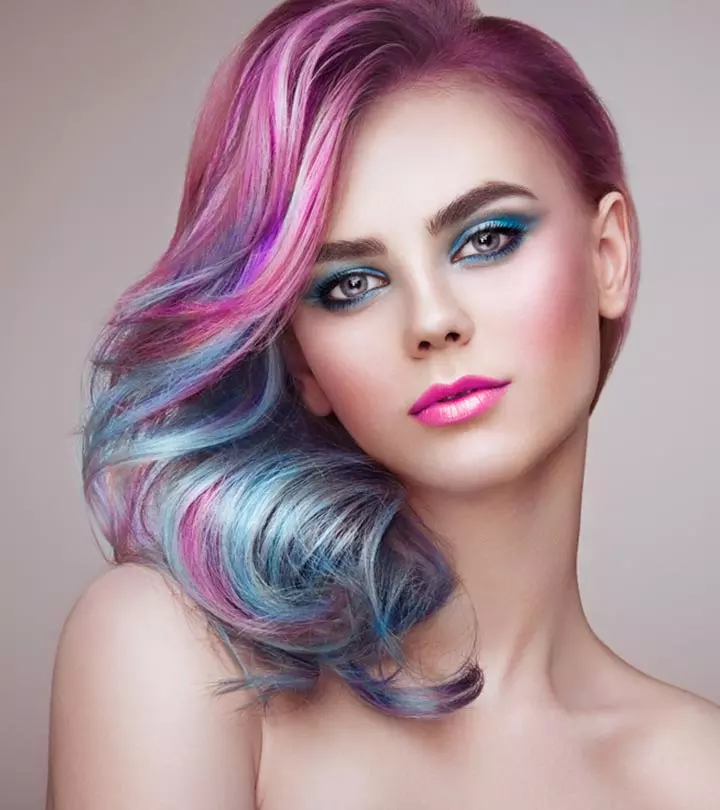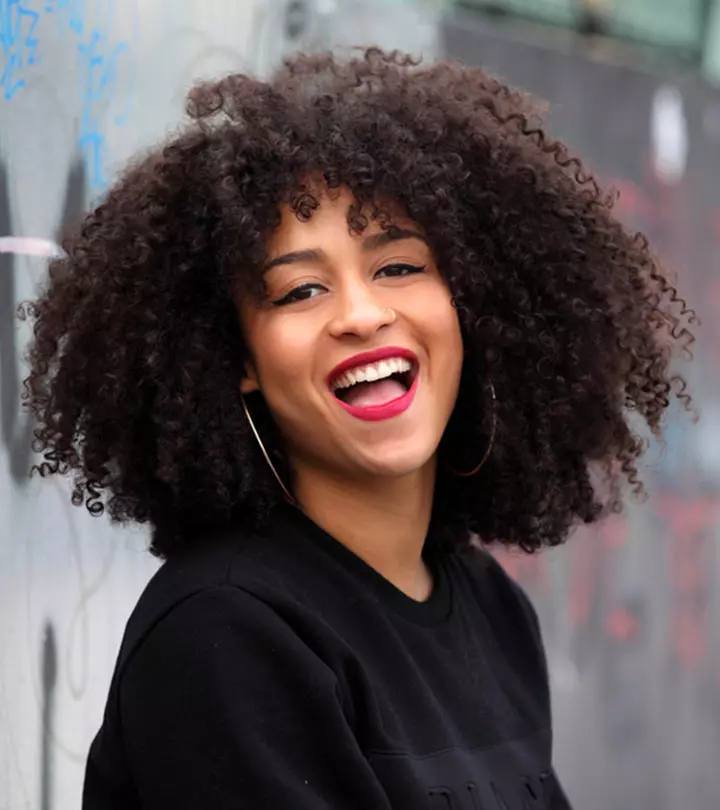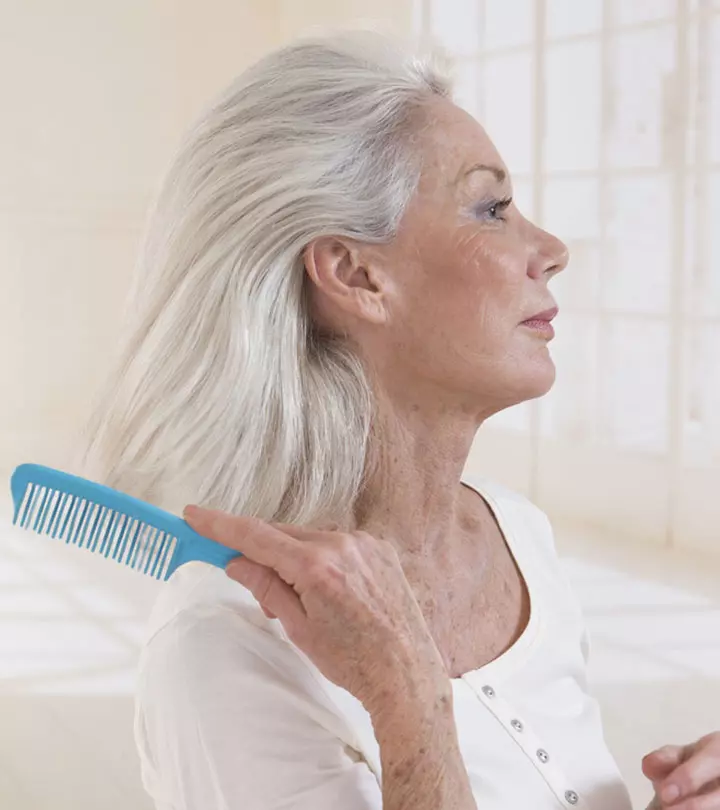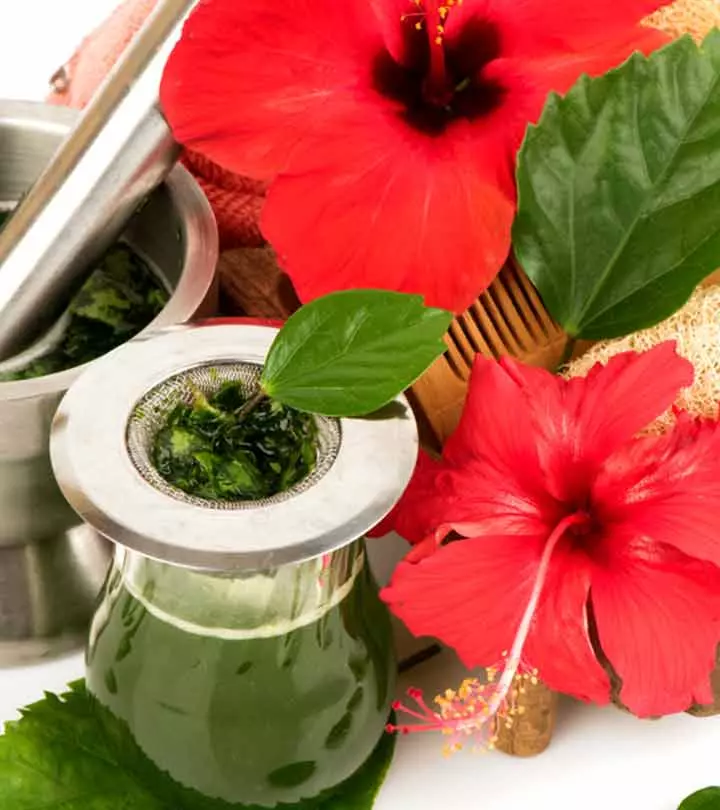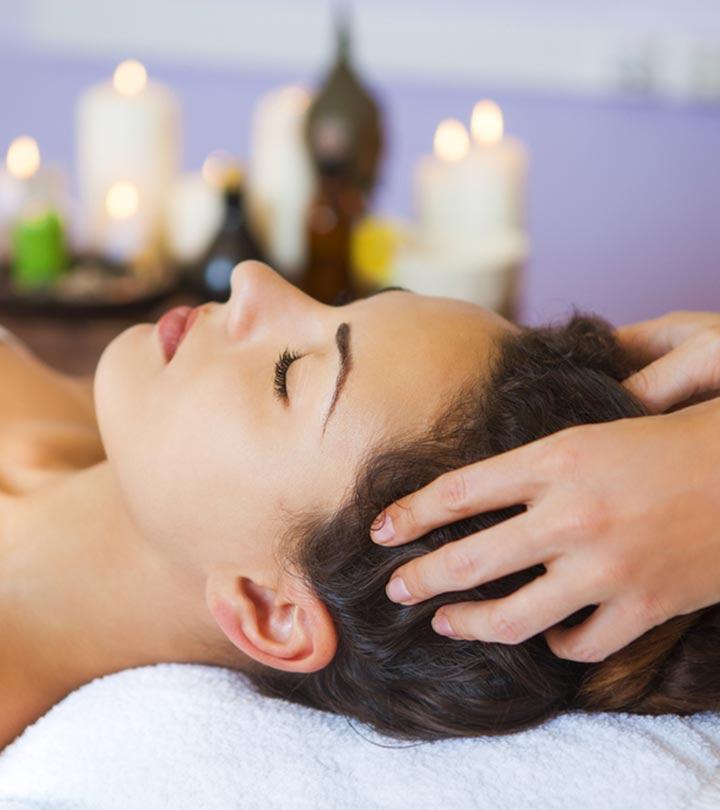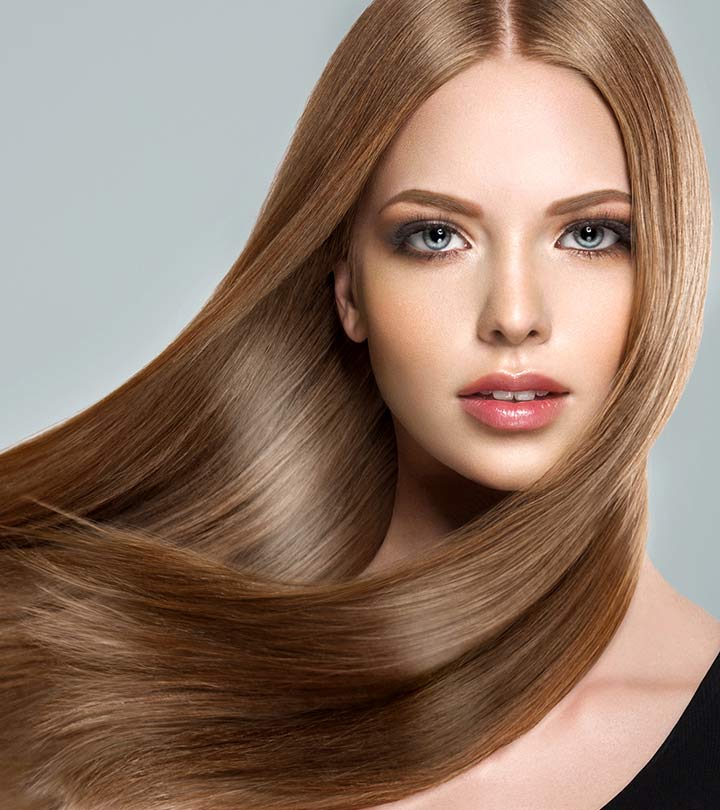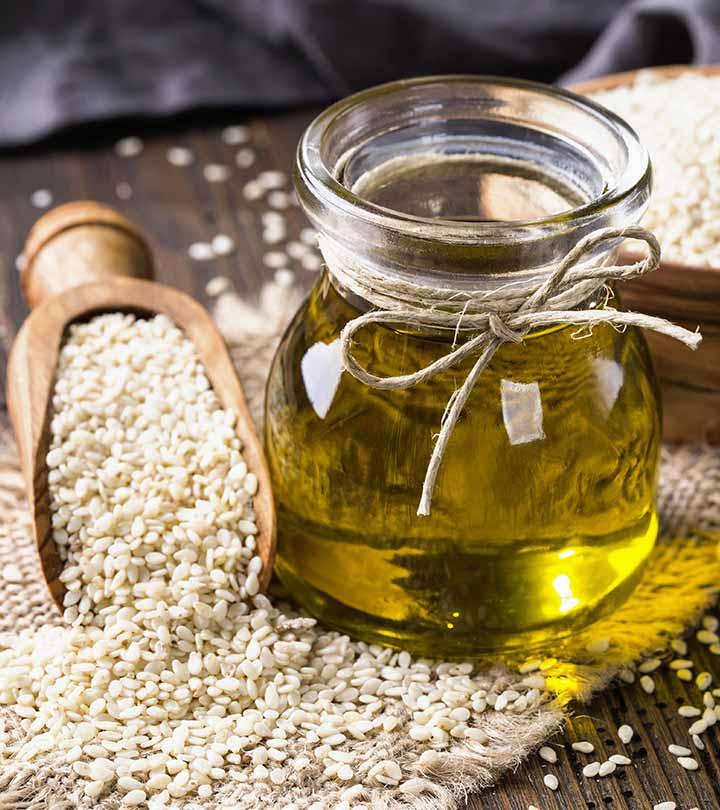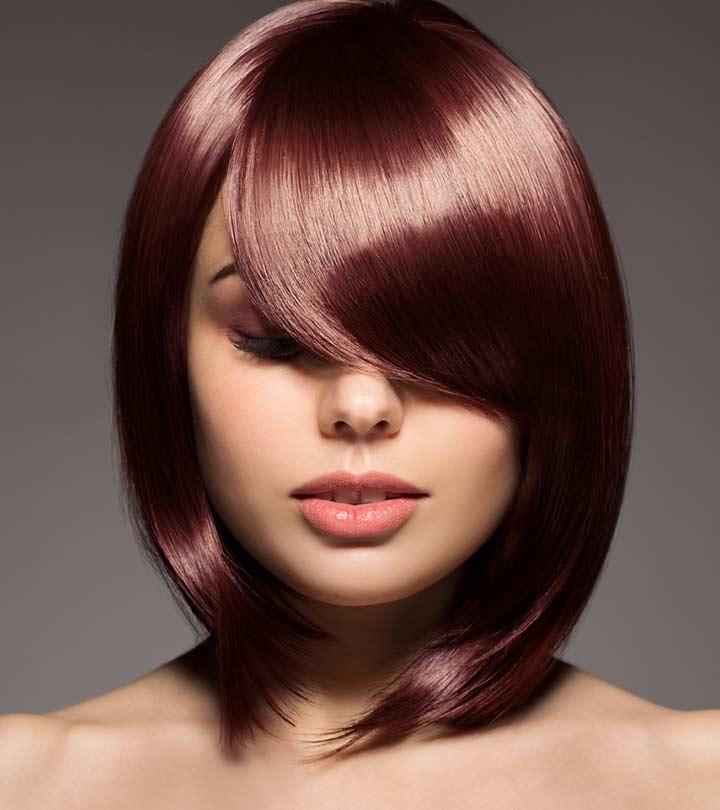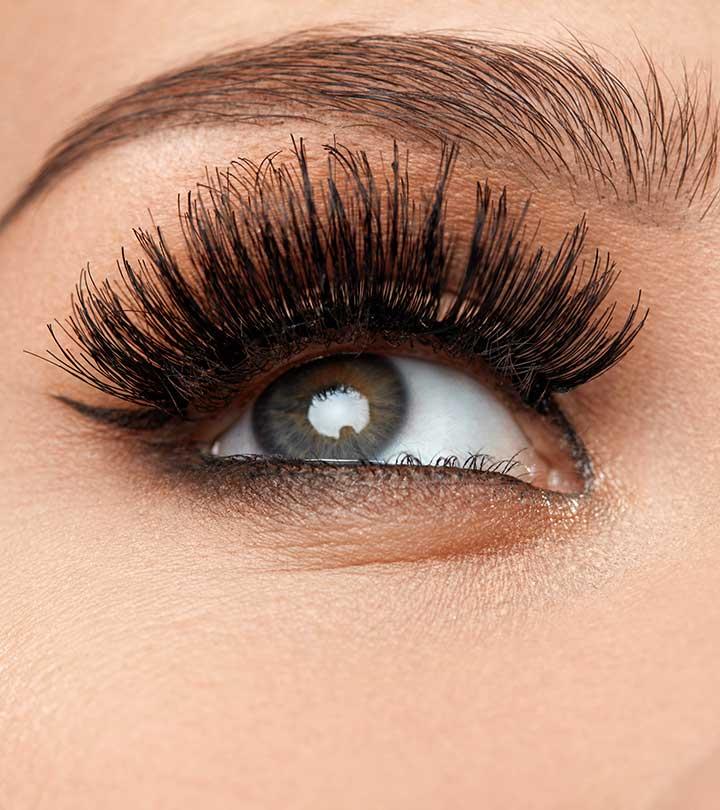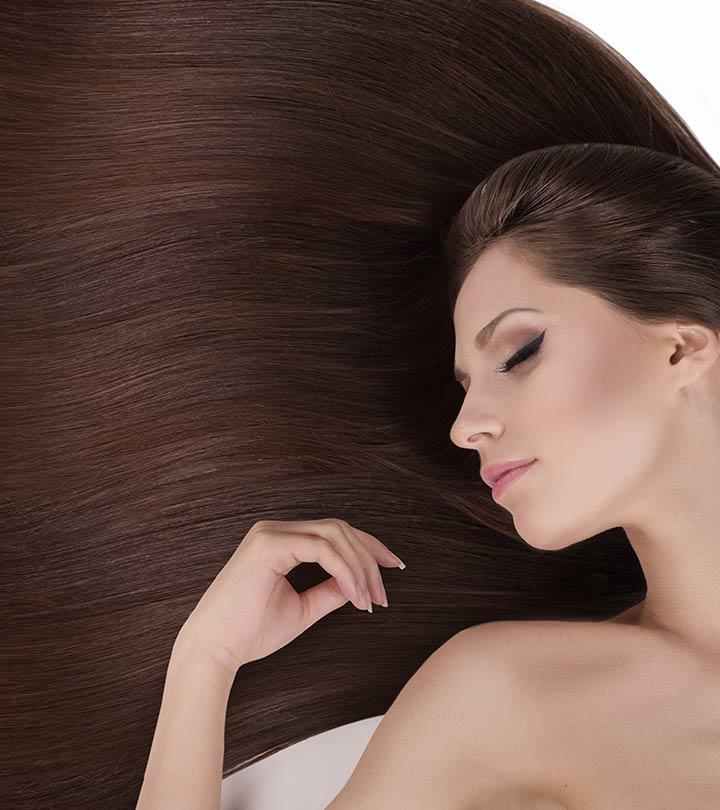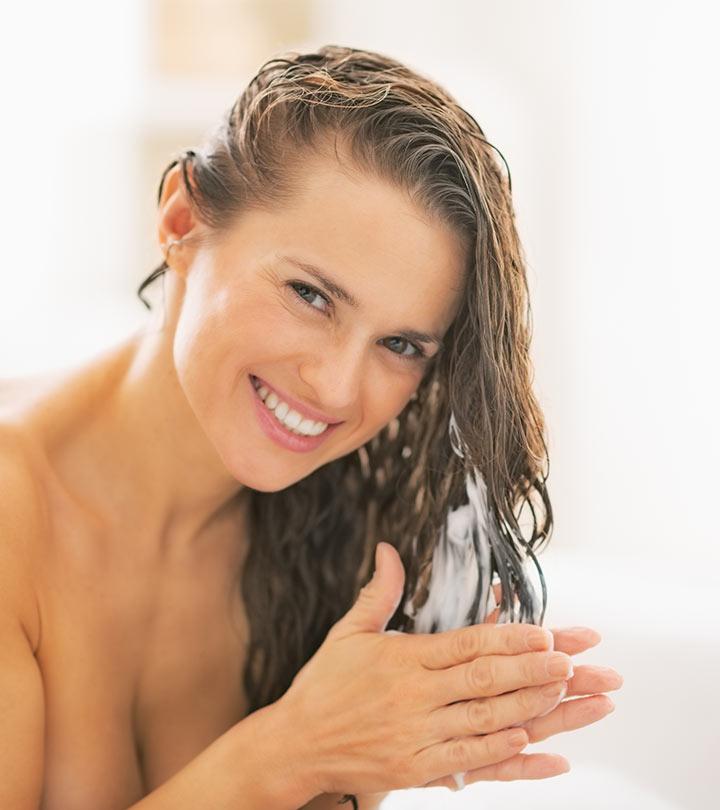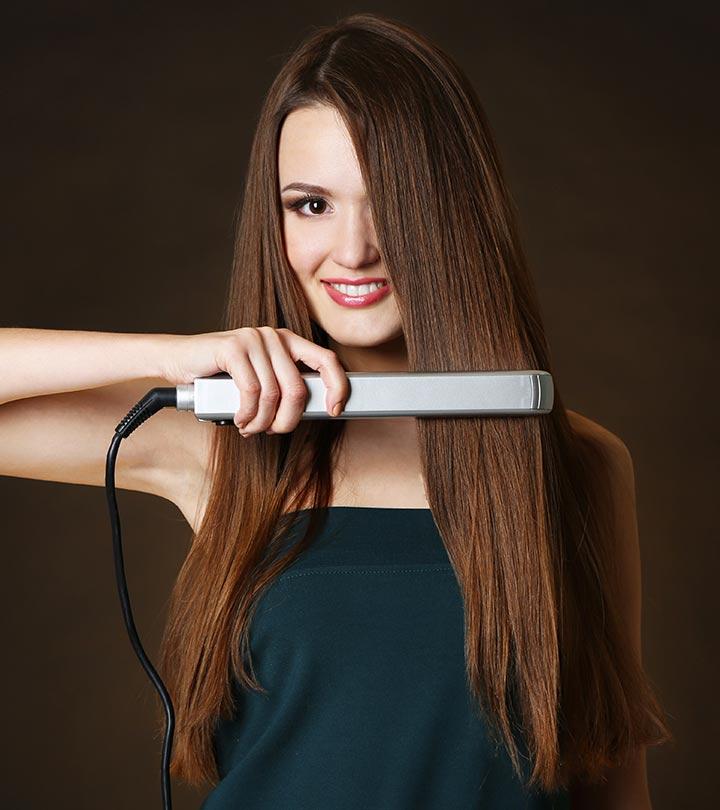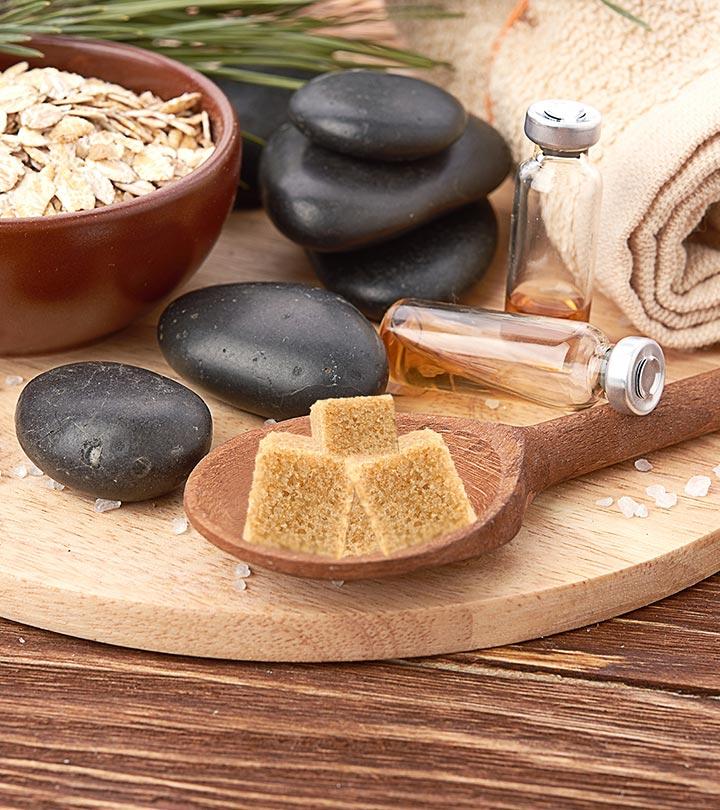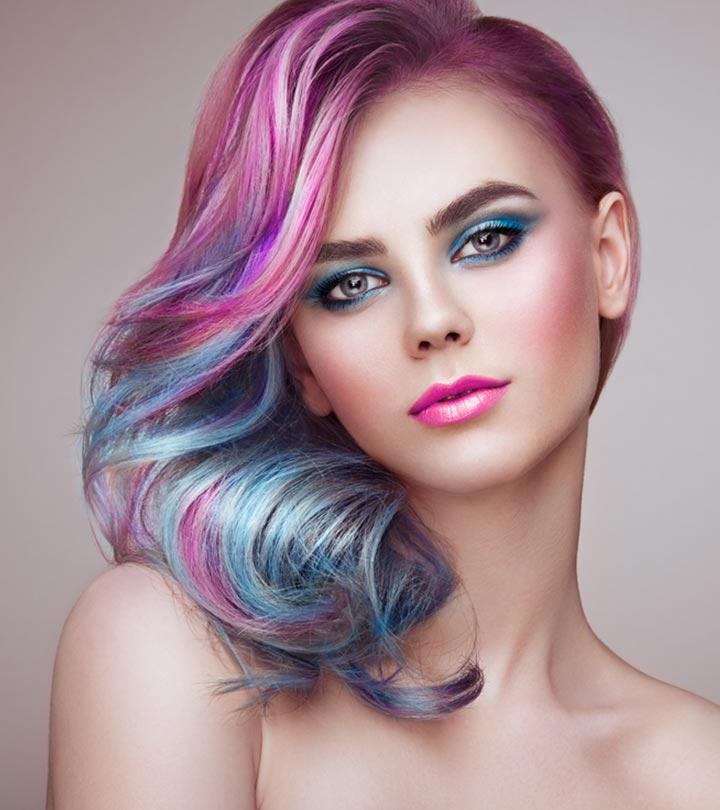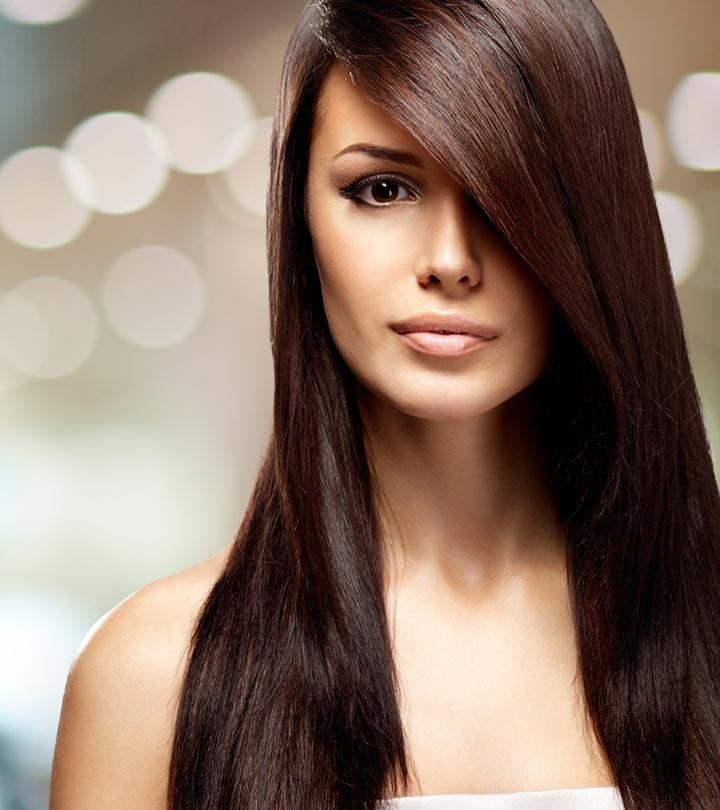15 Simple Hair Care Tips For Black Hair
Use practical management tips to make your hair look healthy, bouncy, and shiny.
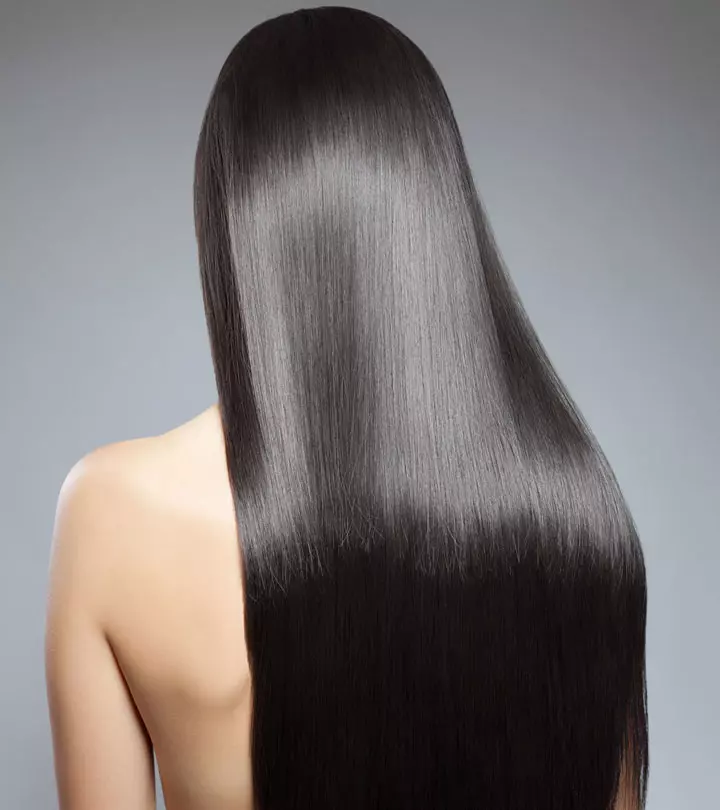
Image: i Stock
Gray hair is the most visible indicator of aging. Although store-bought hair dyes are a proven solution to this problem, the chemicals they contain can harm the hair. That is why it is important to follow some black hair care tips if you have black tresses. You can use natural ingredients like indigo, henna, and coffee to maintain the jet black color of your tresses. In this article, you will find all the natural dyeing alternatives for black hair and some hair care tips to maintain it. Keep reading!
In This Article
What Makes Hair Black?
Your hair color is determined by the melanin content in your hair. There are two types of melanin that determine your natural hair color: eumelanin and pheomelanin (1). The more the eumelanin, the darker the hair.
The biggest issue with black hair is that graying is spotted easily. Parameters like premature aging of hair, extensive use of chemicals, stress, heat, and hair damage can cause hair to lose its natural pigmentation and become white (2).
Adding natural ingredients to your hair care routine can help preserve your hair’s natural pigment. Here are some ingredients that help keep hair dark.
Natural Hair Dyes To Keep Hair Black
- Coffee: The caffeine in coffee was found to stimulate hair growth in androgenetic alopeciai A form of permanent, genetic hair loss condition that affects the top and crown of the head in both men and women. (3). It also elongates the hair shaft, prolongs anageni The phase where the hair follicles grow out hair shafts that continue to grow for 3-4 years until they fall off. duration, and stimulates the proliferation of keratinocytesi The major type of cells found in the outermost layer of the skin that helps repair and restore it. (4). Coffee is often used to color hair red or black (5).
- False Daisy: Bhringraj or false daisy has been used for centuries in Ayurveda to help keep hair black. It helps enhance hair’s natural color. It helped stimulate hair growth in animals (6). It contains alkaloidsi These naturally occurring organic compounds in medicinal plants have anti-inflammatory properties. , flavonoidsi A class of natural compounds found in plants that help prevent cell damage, inflammation, and diseases. ¸ polyacetylenesi A type of organic polymer found in plants, fungi, and invertebrates, with antifungal and antimicrobial properties. , triterpenesi Naturally occurring chemical compounds in fruit peels, stem bark, or leaves that prevent oxidation damage. , and glycosidesi Compounds found in plants that store their chemical information and are widely used for medicinal purposes. , which make this plant a good hair dye (7). It not only darkens hair but also reduces hair loss and stimulates hair growth.
- Tea: Black tea has been used as a natural hair dye for centuries in Ayurveda and Chinese medicine. It contains tannins that increase the color intensity of hair (8).
- Henna: Henna is one of the most popular natural hair dyes. It contains lawsone, a red-orange compound that makes hair dark (9). Henna is known to prevent premature graying of hair.
- Amla: The Indian gooseberry is known to help enhance hair’s natural color. It is often used as a natural ingredient in dyes to keep the hair color dark (10). It contains a high content of vitamin C, which helps reduce hair loss.
- Indigo: Although indigo gives off a natural blue color, it is often used in pair with henna to keep hair black (11).
- Beet Juice: Beetroots have strong antioxidant, anti-inflammatory, and chemo-protective properties (12). They also contain the betalain pigment used in dyes, which can aid in maintaining the dark and lustrous hair shade (13).
- Carrot Juice: The tocotrienol in carrots has potent antioxidant properties that may help increase hair growth and reduce oxidative stress on the scalp (14), (15). It can also keep dryness and dullness at bay, giving the hair a shiny look.
- Shea Butter Oil: It is used in cosmetic and skin care products for its moisturizing, antioxidant, and anti-inflammatory properties (16). These properties may also help nourish the hair and scalp when used in oil form, as is a common practice in certain African countries.
Here are some oils to use in combination with the above ingredients.
 Quick Tip
Quick Tip- Coconut Oil: Coconut oil can penetrate the hair shaft and strengthen it from within (17). It prevents hair damage and premature graying of hair.
- Olive Oil: Olive oil can penetrate the cortex and increase hair hydration from within (18). This strengthens hair color and keeps it black. It also reduces hair damage and hair loss.
- Jojoba Oil: Jojoba oil moisturizes and conditions the hair and promotes a healthy scalp and hair (19).
- Argan oil: Argan oil helps stimulate hair growth. It also keeps the hair moisturized (20).
Maintenance is key to enhancing the hair’s natural color and preventing hair damage. Here are some hair care tips to help keep your hair black.
Tips To Keep Hair Black And Healthy
- Be gentle with your hair. Whether you are combing, massaging, or styling your hair, it is important to be gentle with your hair.
- Oil your hair regularly. Some oils, like coconut oil, give hair nutrition from within and promote hair health by preventing hair damage. Anecdotal evidence suggests that regular oil massages may even stimulate hair regrowth.
Shirly, a blogger, shared she likes to wash her curly black hair once a week. Describing her process, she writes in one of her blogs, “Before I wash it, I always prime my hair with coconut oil or use a conditioner as a pre-treatment. This ensures that my hair is as strong as possible before I start washing it (i).”
- Heating some oils, like olive oil, can help them penetrate the cortex and nourish the hair from within.
- Massage your hair regularly. Research shows that massaging the scalp stimulates blood circulation and increases hair thickness (21).
- Hair treatments, like keratin treatment, may enhance the natural color of hair. The aim is to enhance the protein content of hair and reduce hair damage.
- Use combs and brushes suitable for your hair texture. If you have kinky hair, use a bristle brush. If you have straight or wavy hair, use a wide-toothed comb. Brush your hair gently to avoid breakage or damage.
- Do not comb and avoid hair detangling when it is wet. Wet hair tends to stretch up to 70%. This may cause it to break or damage.
- Another tip is to use your towel the right way. Dry your hair gently with a soft towel. A great tip is to pat or scrunch dry your hair.
- Avoid shampoos that have sulfates and parabens or any hair products with these ingredients. They load your scalp and hair with harsh chemicals that cause damage, making your hair brittle and more prone to breakage.
- Make sure your scalp and hair are clean. Wash your hair routinely at least once every three days. Massage the shampoo on your hair and scalp to remove accumulated dust, oil build-up, and dirt.
- Deep condition your hair at least once a week. The concentrated nutrients nourish the hair, keep it healthy and promote hair elasticity.
- Don’t use too many chemical products or treatments on your hair. These products and treatments contain chemicals that may infiltrate hair and damage it, causing low hair porosity and hair fall.
- Avoid hairstyles like tight ponytails, pigtails, or braids on fine hair on a daily basis. Using hair elastics to pull back hair tightly can cause hair breakage. Some protective hairstyles like box braids may pull on the hair roots and lead to breakage if left for too long.
- Consider taking nutrient supplements to balance deficiencies that cause hair loss (22). This can prevent hair loss and may promote hair growth. To boost healthy hair, vitamins, minerals, protein, and certain fatty acids are needed.
- Exercise and yoga are known to relieve stress. This, in turn, may inhibit hair loss.
- Use hair masks and products, like serums, to improve hair maintenance.
 Quick Tip
Quick TipInfographic: 7 Effective Tips For Black Hair
Watching your hair fall and get damaged can be a dreadful experience. Regular maintenance and following a healthy lifestyle are key to keeping them glossy and healthy. Click on the infographic below for everyday tips that can help you keep your hair long and shiny. Illustration: StyleCraze Design Team
It is hard watching your black hair turn white. But, now you know that following some simple black hair tips can keep your hair color vibrant! Using too many chemical products, the harsh UV rays, stress, and hair damage lead to your hair losing its natural pigmentation. Practicing a regular hair care regimen strengthens your locks and prevents them from losing their black color. Instead of using chemical hair dyes, opt for natural dyes like coffee, indigo, henna, tea, and false daisy to darken your hair. Oiling your hair with coconut, jojoba, olive, or argan oil also helps. Remember to follow the maintenance tips mentioned above to not only keep your hair dark but also to fortify and strengthen it.
Frequently Asked Questions
Does black hair need conditioner?
Black colored hair does require conditioning after washing. Washing hair too frequently can strip hair moisture and its natural oils. A conditioner nourishes and moisturizes hair strands.
How often should black hair be washed?
Wash black-colored hair depending on your hair type. If you have oily hair, wash it thrice or more weekly. Wash dry hair once or twice a week. For normal scalp, follow a once or twice-a-week wash routine.
Why is black hair better?
Most adverts, blogs, and hair care products depict healthy hair as black hair, which is why many people associate it with being better. As long as your hair is healthy, your hair color should not be a problem.
Is black hair attractive?
Depending on your tastes, you may find black hair attractive while others may not.
Who looks good in black hair?
Most Asian, Middle Eastern, and African people are born with dark or black hair. Black hair suits people with cool-toned skin as it is a deep cool-toned color.
Key Takeaways
- The melanin content in your hair determines its hair color.
- Natural hair dyes like coffee, tea, indigo, henna, and amla darken hair.
- Regularly oiling your hair using coconut, jojoba, olive, or argan oils keeps it hydrated and maintains scalp health.
- Using warm oil on the scalp aids in better penetration, while massaging improves blood circulation.
- Trim your hair at regular intervals to prevent split ends.
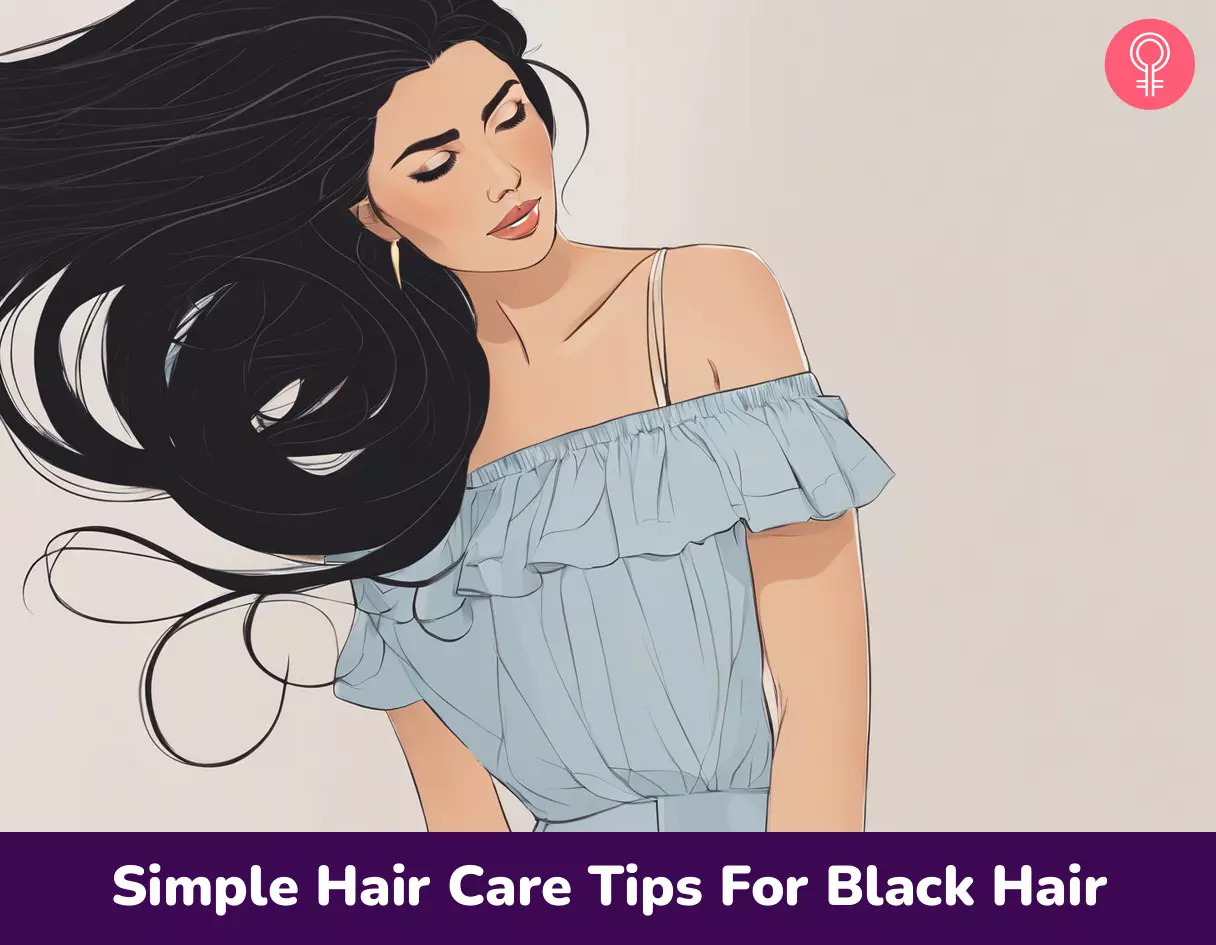
Image: Stable Diffusion/StyleCraze Design Team
References
Articles on StyleCraze are backed by verified information from peer-reviewed and academic research papers, reputed organizations, research institutions, and medical associations to ensure accuracy and relevance. Read our editorial policy to learn more.
- Sehrawat, Manu, et al. “Biology of hair pigmentation and its role in premature canities.” Pigment International 4.1 (2017): 7.
https://www.researchgate.net/publication/317685660_Biology_of_hair_pigmentation_and_its_role_in_premature_canities - Peters, Eva & Imfeld, Dominik & Campiche, Remo. (2011). “Graying of the human hair follicle.” Journal of cosmetic science. 62. 121-125.
https://www.researchgate.net/publication/329466381_Graying_of_the_human_hair_follicle - Fischer, T W et al. “Effect of caffeine and testosterone on the proliferation of human hair follicles in vitro.” International journal of dermatology vol. 46,1 (2007): 27-35.
https://pubmed.ncbi.nlm.nih.gov/17214716/ - Dhurat, Rachita et al. “An Open-Label Randomized Multicenter Study Assessing the Noninferiority of a Caffeine-Based Topical Liquid 0.2% versus Minoxidil 5% Solution in Male Androgenetic Alopecia.” Skin pharmacology and physiology vol. 30,6 (2017): 298-305.
https://www.ncbi.nlm.nih.gov/pmc/articles/PMC5804833/ - Singh, Vijender et al. “Study of colouring effect of herbal hair formulations on graying hair.” Pharmacognosy research vol. 7,3 (2015): 259-62.
https://www.ncbi.nlm.nih.gov/pmc/articles/PMC4471652/ - Datta, Kakali et al. “Eclipta alba extract with potential for hair growth promoting activity.” Journal of ethnopharmacology vol. 124,3 (2009): 450-6.
https://pubmed.ncbi.nlm.nih.gov/19481595/ - Jahan, Rownak et al. “Ethnopharmacological Significance of Eclipta alba (L.) Hassk. (Asteraceae).” International scholarly research notices vol. 2014 385969.
https://www.ncbi.nlm.nih.gov/pmc/articles/PMC4897414/ - Jamagondi, Laxmi N., et al. “Development and evaluation of herbal hair dye formulation.” Journal of Pharmacognosy and Phytochemistry 8.2 (2019): 1363-1365.
https://www.academia.edu/39147292/Development_and_evaluation_of_herbal_hair_dye_formulation - Shahi, Z., M. Khajeh Mehrizi, and M. Hadizadeh. “A review of the natural resources used to hair color and hair care products.” Journal of Pharmaceutical Sciences and Research 9.7 (2017): 1026.
https://www.researchgate.net/publication/318795653_A_Review_of_the_Natural_Resources_Used_to_Hair_Color_and_Hair_Care_Products - Jain, PUSHPENDRA KUMAR, et al. “Traditional Indian herb Emblica officinalis and its medicinal importance.” Innov J Ayurvedic Sci 4.4 (2016): 1-15.
https://www.researchgate.net/publication/306091795_TRADITIONAL_INDIAN_HERB_EMBLICA_OFFICINALIS_AND_ITS_MEDICINAL_IMPORTANCE - Pal, Rashmi Saxena, et al. “Synthesis and Evaluation of Herbal Based Hair Dye.” The Open Dermatology Journal 12.1 (2018).
https://www.researchgate.net/publication/328388284_Synthesis_and_Evaluation_of_Herbal_Based_Hair_Dye - Clifford et al. “The Potential Benefits of Red Beetroot Supplementation in Health and Disease.” US National Library of Medicine 2801–2822.
https://www.ncbi.nlm.nih.gov/pmc/articles/PMC4425174/ - Fu et al. “Red Beetroot Betalains: Perspectives on Extraction, Processing, and Potential Health Benefits.” Journal of Agricultural and Food Chemistry 68(42)
https://pubmed.ncbi.nlm.nih.gov/33040529/ - Bhandari et al. “Influence of Root Color and Tissue on Phytochemical Contents and Antioxidant Activities in Carrot Genotypes.” MDPI 12(1) 120.
https://www.mdpi.com/2304-8158/12/1/120#:~:text=Alpha%2Dtocotrienol%20was%20the%20second,a%20carrot%20with%20white%20roots. - Beoy et al. “Effects of Tocotrienol Supplementation on Hair Growth in Human Volunteers” Tropical Life Sciences Research 21(2): 91–99.
https://www.ncbi.nlm.nih.gov/pmc/articles/PMC3819075/ - Lin et al. “Anti-Inflammatory and Skin Barrier Repair Effects of Topical Application of Some Plant Oils.” International Journal of Molecular Sciences 19(1): 70.
https://www.ncbi.nlm.nih.gov/pmc/articles/PMC5796020/ - Rele, Aarti S, and R B Mohile. “Effect of mineral oil, sunflower oil, and coconut oil on prevention of hair damage.” Journal of cosmetic science vol. 54,2 (2003): 175-92.
https://pubmed.ncbi.nlm.nih.gov/12715094/ - Zaid, Abdel Naser et al. “Ethnopharmacological survey of home remedies used for treatment of hair and scalp and their methods of preparation in the West Bank-Palestine.” BMC complementary and alternative medicine vol. 17,1 355.
https://www.ncbi.nlm.nih.gov/pmc/articles/PMC5499037/ - Shaker M A, Amany M B. “Jojoba oil: Anew media for frying process.” Curr Trends Biomedical Eng & Biosci. 2018; 17(1): 555952.
https://juniperpublishers.com/ctbeb/pdf/CTBEB.MS.ID.555952.pdf - Gavazzoni Dias, Maria Fernanda Reis. “Hair cosmetics: an overview.” International journal of trichology vol. 7,1 (2015): 2-15.
https://www.ncbi.nlm.nih.gov/pmc/articles/PMC4387693/ - Koyama, Taro et al. “Standardized Scalp Massage Results in Increased Hair Thickness by Inducing Stretching Forces to Dermal Papilla Cells in the Subcutaneous Tissue.” Eplasty vol. 16 e8. 25 Jan. 2016
https://www.ncbi.nlm.nih.gov/pmc/articles/PMC4740347/ - Almohanna, Hind M et al. “The Role of Vitamins and Minerals in Hair Loss: A Review.” Dermatology and therapy vol. 9,1 (2019): 51-70.
https://www.ncbi.nlm.nih.gov/pmc/articles/PMC6380979/
Read full bio of Tiffany Young
Read full bio of Eshna Das
Read full bio of Krati Darak





